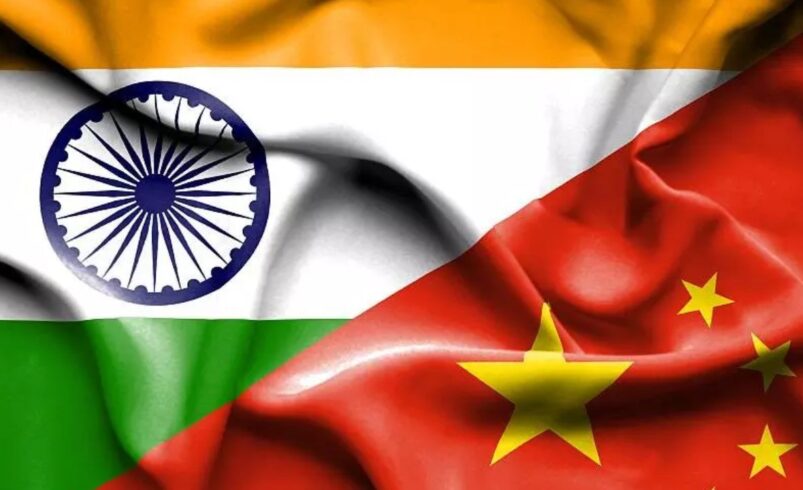As global trade dynamics continue to shift, India finds itself positioned for new opportunities in the Chinese market. Amid escalating trade tensions between the United States and China, Beijing appears keen on strengthening its economic relationship with India. In a recent statement, Chinese ambassador to India, Xu Feihong, expressed China’s interest in welcoming more premium Indian exports. This development could open fresh avenues for Indian exporters, particularly in high-demand categories, and reshape the economic engagement between Asia’s two largest economies.
China’s Renewed Economic Outreach to India
In an exclusive interview with The Times of India, Xu Feihong underlined the mutual benefits of enhanced trade between India and China. He emphasized that the essence of China-India economic and trade relations lies in mutual benefit and win-win cooperation. Contrary to prevailing perceptions, Feihong stated that China does not intentionally pursue a trade surplus, attributing surpluses to market-driven factors that evolve with global economic changes.
This outreach comes at a time when Beijing faces increasing economic pressure from the United States, including tariff hikes and trade restrictions on key Chinese exports. To counterbalance these challenges, China appears to be diversifying its trade partnerships and signaling a fresh focus on India as a strategic trade partner.
Impressive Growth in Indian Exports to China
In the financial year 2024, several Indian commodities witnessed substantial growth in exports to China. According to recent trade data, exports of chili peppers rose by over 17%, iron ore surged by 160%, and cotton yarn soared by an impressive 240%. These figures highlight the rising demand for Indian products in the Chinese market and the potential for deeper economic integration.
The Chinese envoy expressed optimism over the export of premium Indian goods to China. He affirmed China’s readiness to support Indian businesses in exploring its vast consumer base, which remains the world’s second-largest market with a growing middle-income population. This consumer segment is increasingly drawn toward high-quality imported products, offering a valuable opportunity for Indian exporters in diverse sectors.
China’s Investment Potential for Indian Businesses
Beyond the export prospects, Xu Feihong highlighted China’s attractiveness as an investment destination. Citing President Xi Jinping’s recent address to global business leaders, Feihong pointed out that China offers immense opportunities for investment and consumption. With a super-sized domestic market and the largest middle-income group globally, China remains an appealing market for foreign companies looking to expand their footprint.
For Indian enterprises, this represents an opportunity not only to export goods but also to establish a presence in the Chinese market through strategic partnerships, joint ventures, or wholly-owned subsidiaries. By leveraging China’s market demand and infrastructure, Indian businesses can scale their operations and access one of the world’s most lucrative consumer economies.
Bilateral Challenges and China’s Expectations
While the recent statements from China indicate a positive outlook for economic cooperation, several challenges persist in the India-China trade relationship. India continues to grapple with a significant trade deficit with China, which stood at $99.2 billion in the last fiscal year. Additionally, political tensions, particularly following the 2020 border standoff, have strained diplomatic ties between the two nations.
Despite these issues, China has expressed hope that India will address concerns surrounding market access for Chinese enterprises. Feihong urged New Delhi to ensure a fair, transparent, and non-discriminatory business environment for Chinese companies operating in India. He emphasized that resolving these matters could help elevate bilateral economic relations and deliver tangible benefits to both economies.
US Tariffs and China’s Diversification Strategy
The backdrop to this diplomatic and economic outreach is the ongoing trade conflict between the United States and China. As the US imposes additional tariffs on Chinese goods, Beijing faces the imperative of reducing its dependency on Western markets. One of China’s strategic responses to this situation is to diversify its trade relationships, with India emerging as a natural partner given its growing economy and expanding export capacity.
By opening its markets to more premium Indian products, China aims to mitigate the impact of US tariffs and rebalance its international trade partnerships. This strategy also aligns with China’s long-term economic plans to enhance domestic consumption, promote high-quality imports, and build stable trade links with emerging economies like India.
Potential Sectors for Indian Exporters
The encouraging signals from China open new possibilities for Indian exporters across multiple sectors. While traditional commodities like spices, iron ore, and textiles have performed well, there is untapped potential in categories such as agricultural products, pharmaceuticals, processed foods, organic produce, and consumer durables.
With China’s rising demand for premium and high-value imports, Indian businesses can explore product segments that cater to the preferences of China’s growing middle class. Additionally, sectors like technology services, healthcare, and renewable energy equipment could present significant opportunities as China modernizes its infrastructure and health systems.
Source : Business Today







